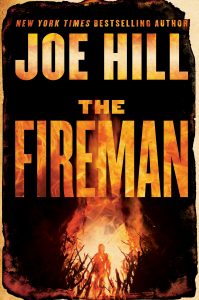
Welcome to the Losers’ Club by Bev Vincent
There are a lot of monsters in Derry, Maine during the summer of 1989. These are in addition to the lurching leper, the toothy creature from the painting, a boy who lost his head during the Easter Explosion of 1908 and, of course, Pennywise the Dancing Clown.
The monsters to which I refer are the citizens of this long-troubled, perhaps cursed town. They include people who drive past without offering to help a boy being savagely beaten by bullies, the mother who lies to her son about his health to control and manipulate him, and the sexually abusive father. To the extent that there are adults in Derry (and in some ways, this reality resembles the world of Charlie Brown where grown-ups are seldom seen and hardly ever heard), they are abusive, neglectful or emotionally absent.
Continue Reading



 Over the past few years, TV series based on the works of Stephen King have taken different approaches with varying degrees of success. One of the best was 11.22.63, which stayed reasonably close to the source material and did not continue past the novel’s conclusion. At the other end of the spectrum was Under the Dome, which started out okay, but struggled as time went on. Rather than film the novel, they decided to stretch it as far as it could go, and it broke.
Over the past few years, TV series based on the works of Stephen King have taken different approaches with varying degrees of success. One of the best was 11.22.63, which stayed reasonably close to the source material and did not continue past the novel’s conclusion. At the other end of the spectrum was Under the Dome, which started out okay, but struggled as time went on. Rather than film the novel, they decided to stretch it as far as it could go, and it broke.

 There’s been so much news lately, I hardly know where to begin. What merits top billing? Let’s start with that trailer for It. First we had
There’s been so much news lately, I hardly know where to begin. What merits top billing? Let’s start with that trailer for It. First we had 


 Shortly after the publication of Mr. Mercedes, Stephen King announced that the book was the first in a trilogy that would be connected by the City Center Massacre (in which a psycho named Brady Hartsfield stole a Mercedes and plowed into a crowd of people who were waiting in line at a job fair in a struggling Mid-western city).
Shortly after the publication of Mr. Mercedes, Stephen King announced that the book was the first in a trilogy that would be connected by the City Center Massacre (in which a psycho named Brady Hartsfield stole a Mercedes and plowed into a crowd of people who were waiting in line at a job fair in a struggling Mid-western city). The Fireman by Joe Hill
The Fireman by Joe Hill